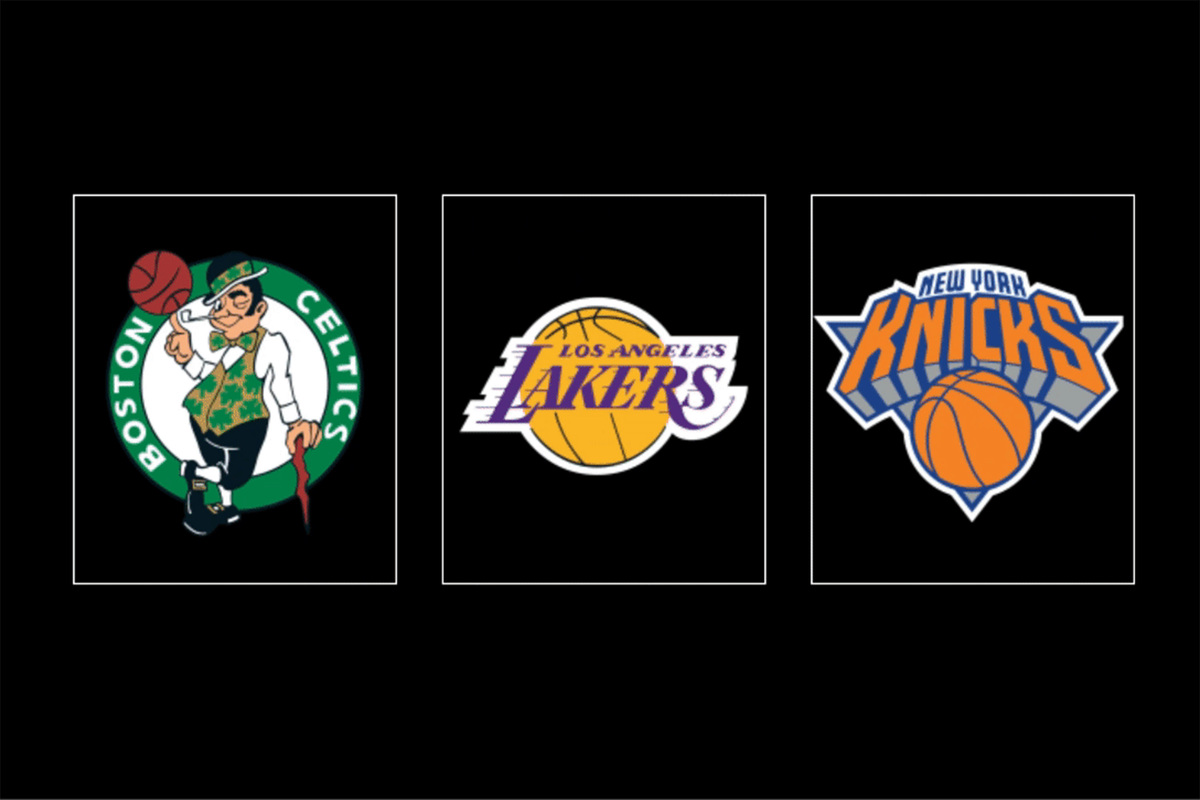
In the past decade of playoff basketball, the Warriors with Steph Curry, Klay Thompson, and Draymond Green have seen just about everything. Suspensions and brutal injuries. Game 7s and tense overtime periods. 3-1 comebacks for them, and, famously, for their opponents.
But that just about left out one scenario, and the proud, championship Warriors are now in uncharted territory. After a 114-106 loss in Sacramento on Monday night—and after a Draymond Green ejection, another De’Aaron Fox fourth-quarter explosion, and an extra-joyous “Light the beam” postgame celebration—the veteran Warriors trail 2-0 in a playoff series for the first time in the entire Curry era.
With two home games upcoming, the defending champions aren’t cooked yet. But across all seven-game postseason series in NBA history, teams up 2-0 have gone on to win the series 92 percent of the time. At this point, the water is at least starting to boil.
That historical factoid is not meant to suggest that comebacks are impossible. The Mavericks overcame a 2-0 deficit against Phoenix last spring, and a shocking four 2-0 leads were overturned in the 2021 playoffs (the Bucks over the Nets and Suns, the Clippers over the Mavericks and Jazz). The Warriors themselves lost a 2-0 lead in the 2016 Finals.
But such a comeback remains incredibly hard even in the modern NBA. Over the past decade, teams that lose the first two games of a playoff series have gone on to win just 13 percent of the time. Against that baseline, the Warriors’ 15 percent comeback odds according to The Ringer’s NBA Odds Machine seem generous.
The Warriors aren’t like the typical team trailing 2-0 in a series; in their favor, primarily, is that both games have been close. In Game 1, Curry had a chance to tie the score with a lunging 3-point attempt in the final seconds; in Game 2 on Monday, the Warriors trailed 102-101 in the final minutes before a flurry from Fox spurred the Kings to a 10-2 run.
But the series’ early trends don’t suggest that Sacramento has been lucky to escape with two home wins, or that Golden State is bound to return the favor in Games 3 and 4. Simply, the Kings have outplayed their northern California neighbors thus far, and demonstrated why the no. 3 seed should always have been favored over the no. 6 seed, even though the two franchises’ reputations diverge dramatically and both expert analysis and Vegas scorebooks favored Golden State.
Throughout the regular season, the most confusing puzzle surrounding the inconsistent Warriors was their poor play on the road. Golden State finished 33-8 at home this season compared to 11-30 on the road—but the main driver of that gap appeared to be random luck. As I explored last month, their opponents’ 3-point shot quality was essentially the same both at home and on the road, but their opponents’ shotmaking was much better away from the Chase Center, for no apparent reason.
Overall, Warriors opponents made 33 percent of their 3s in Golden State (the third-lowest mark in the league) and 40 percent of their 3s away from Golden State (second highest). But their opponents’ expected 3-point percentage, as calculated by Second Spectrum according to factors like shot location and defender distance, was 35 percent in both locations.
So on the one hand, it’s not surprising that the Warriors’ road woes would continue into the postseason, and that they’d lose their first two games on the road, in front of an ecstatic, cowbell-ringing crowd experiencing its first playoff basketball in 16 years. But on the other hand, Golden State has fallen behind 2-0 in the series—and Sacramento hasn’t even shot well.
On Monday, the Kings missed their first 11 3-point attempts and didn’t improve their accuracy much from there. They finished with a 24 percent mark from distance (9-for-38) and now sit at an even 30 percent in the series; their starters in particular are at a dismal 21 percent, as Kevin Huerter, Harrison Barnes, and Keegan Murray haven’t yet found their playoff shooting touch.
That shakiness comes despite a lot of good looks for good shooters. Sacramento’s expected 3-point percentage in the series is a robust 37 percent, per Second Spectrum, after the Kings shot 37 percent on 3s in the regular season—meaning the Warriors defense has actually experienced abnormally good shooting luck on the road, and they still haven’t won either game.
Instead, both games have followed a similar pattern: The Warriors shot better (if still not quite to their historically high standards), but the Kings won every other relevant statistical battle, for turnovers, for offensive rebounds, and for free throws. In the Four Factors formula, the Kings swept the final three.
The Warriors’ penchant for foolish turnovers is inherently tied to the team’s identity at this point—but even by those standards, Game 2 was sloppy. The Warriors’ 22 turnovers in Game 2 tied for their most in any playoff game since Steve Kerr took over as coach in 2014-15 and the dynasty began. That count included five giveaways in the first four minutes, which led to all eight of the Kings’ points in that span as Sacramento missed its early 3s, and the turnover pace slowed only slightly from there.
(Somehow, hilariously, Kerr’s Warriors still have a winning record of 6-5 in playoff games with 20-plus turnovers.)
Moreover, even as the Warriors kept either Green or Kevon Looney on the court at all times, the Kings bested them on the offensive boards in the two games so far. Sacramento rebounded 40 percent of its misses in Game 1, per Cleaning the Glass, and 33 percent in Game 2. For context, the best offensive rebounding team in the regular season was Houston, at 33 percent.
And finally, Sacramento has attempted more free throws than Golden State in both games so far. On Monday, Domantas Sabonis’s persistence around the basket forced both Green and Looney into foul trouble—and, most notably, a confrontation in the fourth quarter catalyzed a Green ejection, after the Kings center grabbed Green’s leg and the Warriors forward responded with a stomp to Sabonis’s chest.
With those hindrances, Golden State’s rotation in Game 2 exposed another urgent shortcoming for its potential title defense, as Kerr seems to be searching for answers to fill out the rotation around his core. Andrew Wiggins returned to the starting lineup in Game 2 after he came off the bench in Game 1 (his first game in months), as Kerr sought to match up better with Fox, who scored 38 in the Kings’ series-opening win.
“We’ve got to put our best athlete on him,” Kerr said during his between-quarters interview on TNT on Monday.
Fox’s early outburst is reminiscent of Ja Morant’s success in the Warriors-Grizzlies clash last spring. Fox is a fast guard who pushes downhill on drives, as is Morant, who averaged 38 points through three games against Golden State before missing the rest of the series with an injury.
But Wiggins’s inclusion in the starting lineup meant meager bench production aside from Gary Payton II, who scored 13 points while helping to defend Sacramento’s top guards. The Warriors’ grand youth movement has stalled: Jonathan Kuminga has played just 14 uneventful minutes in the series, and Moses Moody was mostly a bystander after Kerr dusted the mothballs off the second-year wing for eight minutes in Game 2.
Most of all, Kerr no longer seems to trust Jordan Poole. To be fair, he has reason not to, because Poole shot just 1-for-7 in Game 2, couldn’t stay in front of Sacramento’s guards on defense, and committed an atrocious turnover when he tried to initiate the offense with both Curry and Thompson off the floor.
Poole played only 16 minutes in Game 2 and is now averaging just 18.6 through two games in this series—which is a continuation of last postseason’s trend, when his minutes dropped as the tension ratcheted upward in every successive round.

Meanwhile, Sacramento’s reserves are thriving. Malik Monk scored 50 points across the first two games and was a core part of crunch time lineups, and other bench contributors like Davion Mitchell, Trey Lyles, and even Alex Len played key minutes to propel Sacramento to a 2-0 series lead.
Perhaps the roles will reverse and the Warriors’ bench will outplay the Kings’ at the Chase Center; as the (perhaps overstated and misleading) cliché goes, role players are better at home than on the road. The Warriors are slight favorites at home in Game 3, according to the Odds Machine, and it would take only one win to shift the momentum of this series.
But Golden State hasn’t looked right all season, even when everyone was healthy, and even against teams that weren’t as dynamic as the Kings. Do the Warriors have it in them, after 84 games, to change course? They have until Thursday night to make the necessary adjustments—if not, their title defense will end with a whimper in the first round, where they haven’t lost since Kerr took over. It’s strange to say, after so much playoff history, but these Warriors have never been in this situation before.


